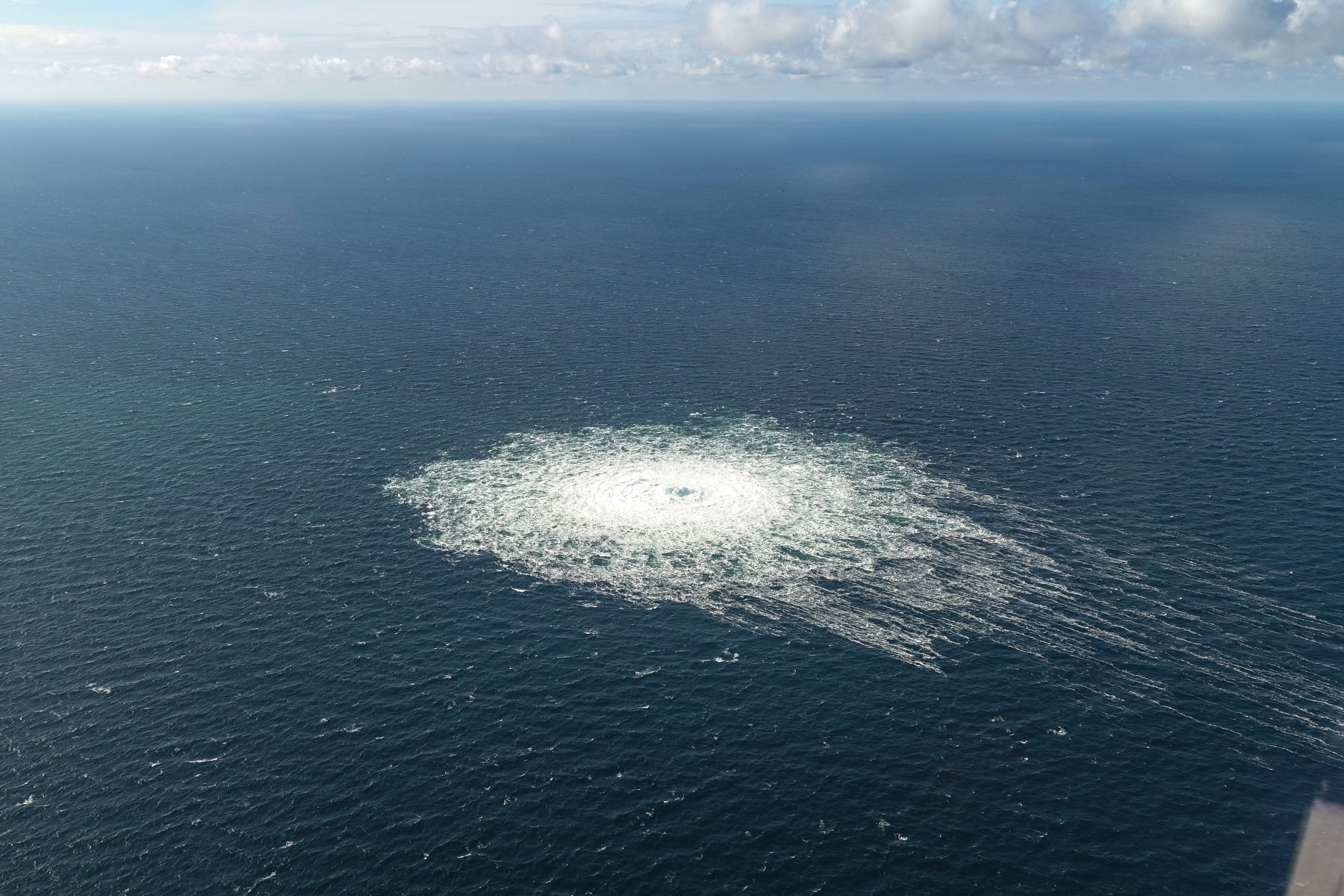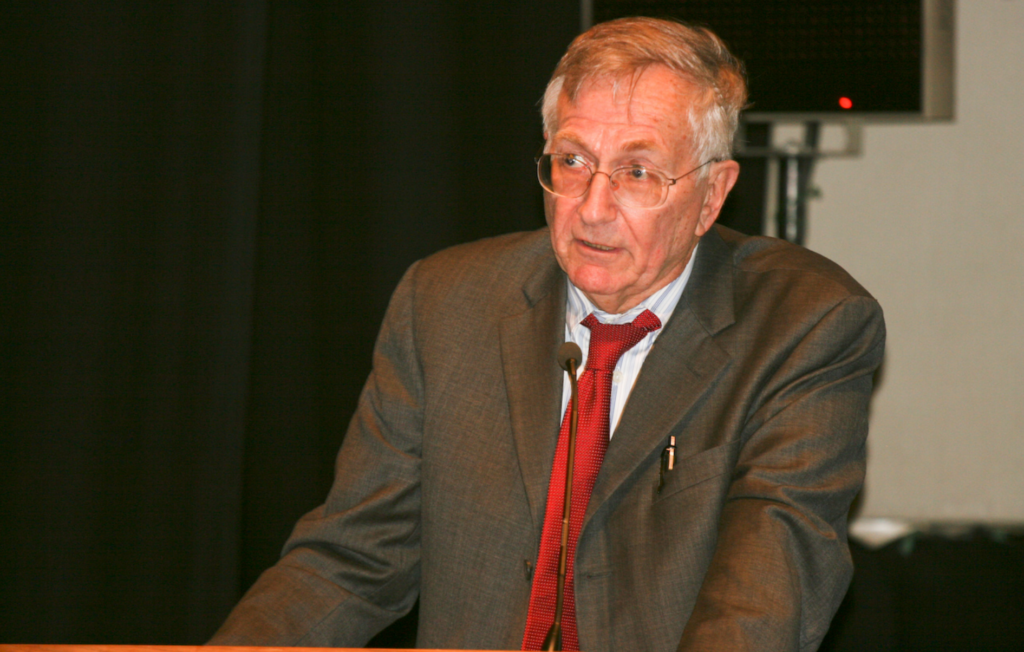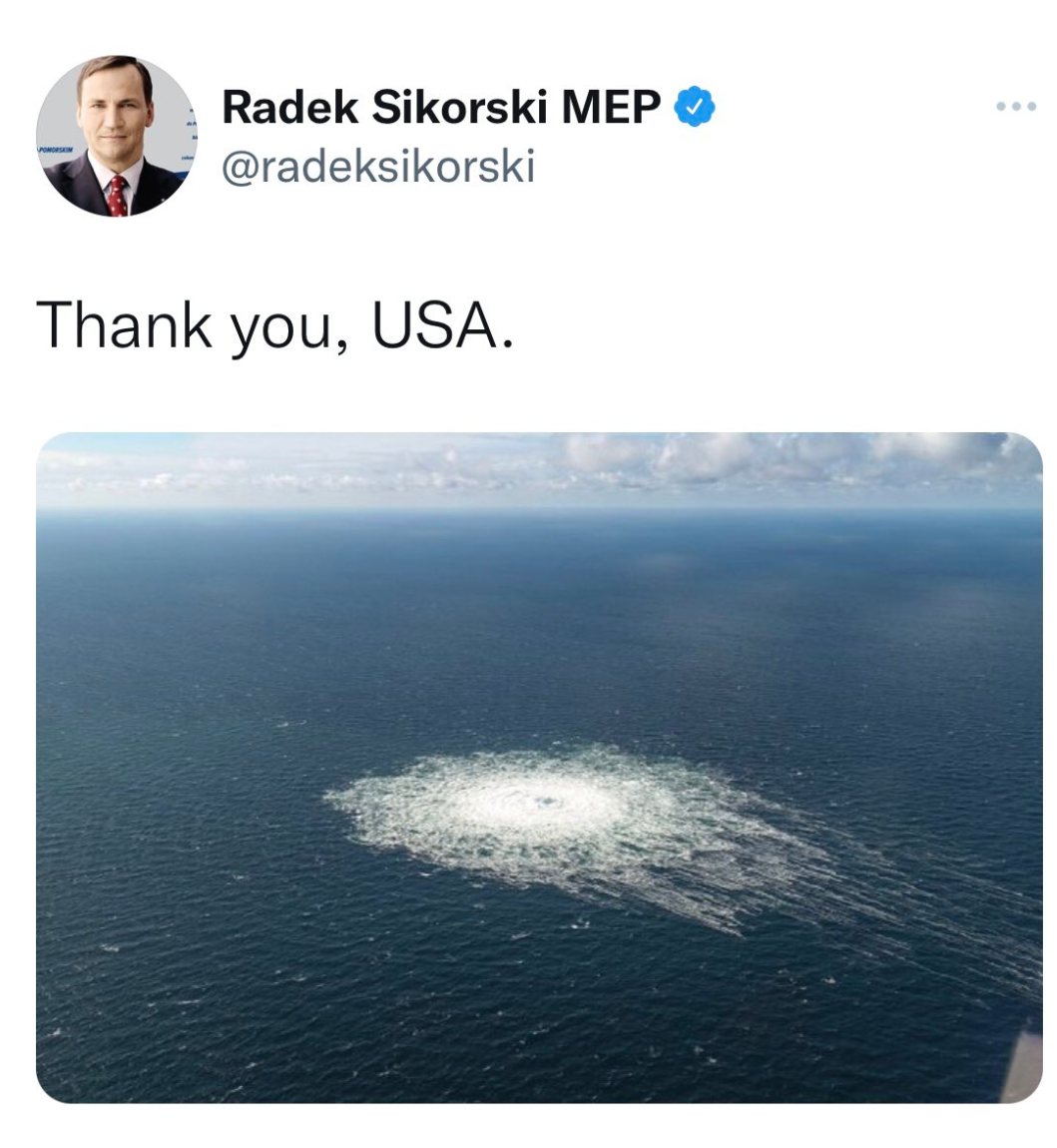On 26 September last year, the Nord Stream 1 and 2 underwater gas pipelines between Russia and Germany were blown up just off the coast of Bornholm, a Danish island in the Baltic Sea.
The explosions, which caused "catastrophic" environmental harm as well as possibly irreparable damage to the majority Russian State-owned multibillion-dollar infrastructure, were widely described as a "mystery" by Western media, including The New York Times. Other outlets and officials explicitly blamed Russia for the "deliberate act of sabotage".
In February this year, however, veteran US investigative journalist Seymour Hersh, who won the Pulitzer Prize in 1970 for unearthing the story of the infamous My Lai massacre in Vietnam, published an article which purported to solve the mystery. Hersh alleged that US Navy divers, acting under the direct orders of US President Joe Biden, planted C4 explosives on the pipelines during routine NATO exercises in June last year, before remotely activating the bombs three months later.
Although Hersh's self-published article received significant coverage in the European (and particularly the German) press, it was largely ignored by British and American newspapers. His claims were categorically denied by senior Western officials: US National Security Council spokesperson John Kirby dismissed Hersh's article as "completely false".
All too real?
Intriguingly, in recent media interviews Hersh has often quoted an anonymous "wonderful old friend" of his who, upon reading the article, told him: "Sy, you've become a master in deconstructing the obvious."
This, in turn, raises the (obvious) question: if Hersh's claims that the US blew up the pipelines are true, why have so few English-language media outlets endorsed, or even mentioned, his reporting? When put the question in an interview with The Brussels Times, Hersh addressed this insistent ignorance: "They don't mention the elephant in the room. What can I tell you? I don't know why."

Credit: Twitter / Danish Defence Forces
He added: "When I worked in the newspaper business, if there was a good story around we'd try to match it. We certainly didn't ignore it. But that's the way it is these days."
'The elephant in the room'
As Hersh notes in his article, the weight of circumstantial evidence indicates that the US is the prime suspect behind the Nord Stream sabotage – the "elephant in the room" to which he referred in the interview.
In late January – barely a month before Russia's full-scale invasion of Ukraine – Under Secretary of State for Political Affairs Victoria Nuland told reporters: "I want to be very clear with you today: if Russia invades Ukraine, one way or another, Nord Stream will not move forward."
Nuland's remarks were echoed just days later by US President Joe Biden. "If Russia invades – that means tanks or troops crossing the border of Ukraine – there will be no longer a Nord Stream 2," Biden said during joint a press conference with German Chancellor Olaf Scholz. "We will bring an end to it... I promise you, we'll be able to do it."
In a press conference held just days after the explosion, US Secretary of State Antony Blinken described the sabotage as a "tremendous [strategic] opportunity" for the US. His remarks were echoed earlier this year by Nuland, who said during a Senate hearing that "I am, and I think the administration is, very gratified to know that Nord Stream 2 is now... a hunk of metal at the bottom of the sea."
Such comments are not limited to US officials: in the incident's immediate aftermath, former Polish Foreign Minister and current Chair of the European Parliament's Delegation for Relations with the United States Radek Sikorski — who is also married to acclaimed US journalist Anne Applebaum — took to Twitter to explicitly thank the US for blowing up the pipelines.
In a subsequent interview with The Brussels Times, Sikorski suggested that his since-deleted tweet was a "joke" which had been "over-interpreted". Nevertheless, he admitted that he found it "hard to believe that the Russians would destroy their own pipelines".
All of these comments by Western officials come on top of the US's long-standing animosity towards Nord Stream specifically, as well as US strategic planners' more general long-held fears of closer economic ties developing between Russia and Europe, particularly Germany.
As former US Secretary of State Condoleezza Rice noted back in 2014: "You want to change the structure of energy dependence. You want to depend more on the North American energy platform... You want to have pipelines that don't go through Ukraine and Russia. For years, we've tried to get the Europeans interested in different pipeline routes. It's time to do that."
Rice's hopes have since been borne out: US exports of liquefied natural gas (LNG) to Europe increased 137% in the first 11 months of 2022 compared to the same period in 2021, meaning that the US now supplies more than half of Europe's LNG. Europe's share of piped gas imports from Russia fell 54% over the same period.
Anonymous sourcing
Despite the numerous pieces of circumstantial evidence which would appear to support Hersh's claims, his article has – perhaps justifiably – been widely criticised for its heavy reliance on a single unnamed source, described only as someone with "direct knowledge of the operational planning".
Yet Hersh vehemently defended his use of the anonymous source: "I've been doing stories for fifty years and I worked at The New York Times for seven or eight years. I won an awful lot of prizes there for a lot of stories. And I doubt if maybe 5% of my stories had a source named. Most of them were without sources because you can't do this kind of reporting without it."
Hersh also noted the irony that, despite being criticised for not naming his source, alternative accounts of what happened on 26 September – including a report published last month by The New York Times which blamed a mysterious "pro-Ukrainian group" for carrying out the sabotage – also didn't name sources.
"That's just the way it is. If they can't get [the same story], they blame the lack of sources. Every day in The New York Times there are stories without any sources named. The difference is, they're protecting people who work for the Press Office of the President. I'm not: I'm protecting people who are in a very different place."
'So much venom'
Although he was careful to emphasise that his expertise lies in journalism rather than broader political commentary, towards the end of the interview the 85-year-old Hersh also admitted to being "very upset" – even "disturbed" – by the state of contemporary Western politics, particularly in the US.
"The hatred of Putin and the hatred of Russia, and of China, right now is just out of control in my country. The idea of Biden sitting down with Putin is impossible right now. There is so much venom and so much hate. I don't know what the hell is going on."
Related News
- EU dismisses report that US blew up Nord Stream pipeline as 'speculation'
- UN Security Council turns down Moscow's request for independent Nord Stream inquiry
He added: "It's increasingly hard for me to see what hating China and hating Russia – and making it so personal – does for us. I mean, we have a Secretary of State who cancelled a meeting with his Chinese counterpart because of a balloon."
"But, look, I'm not a political analyst. I'm a fricking journalist."


